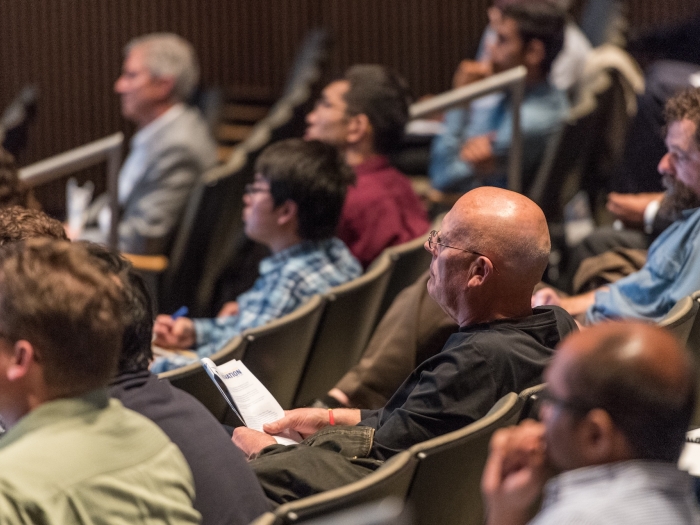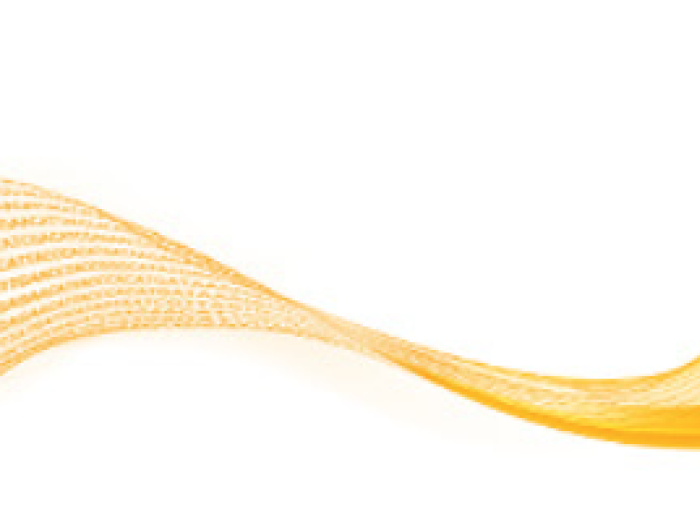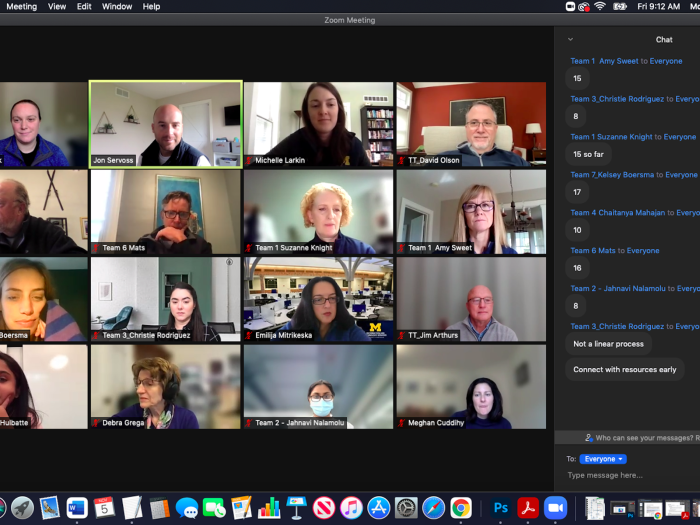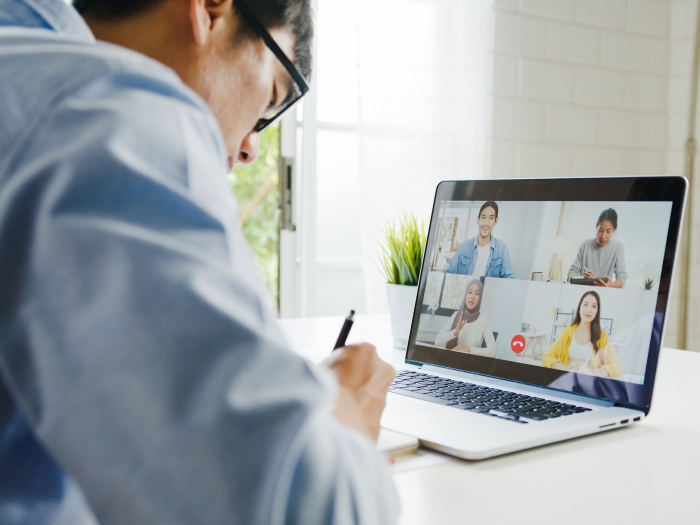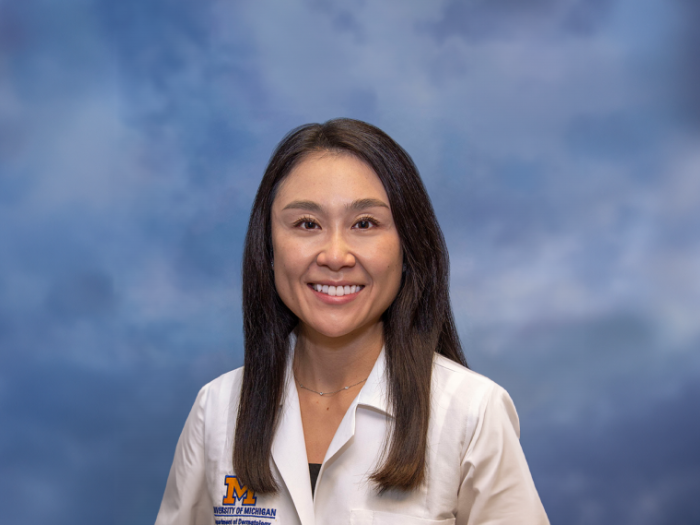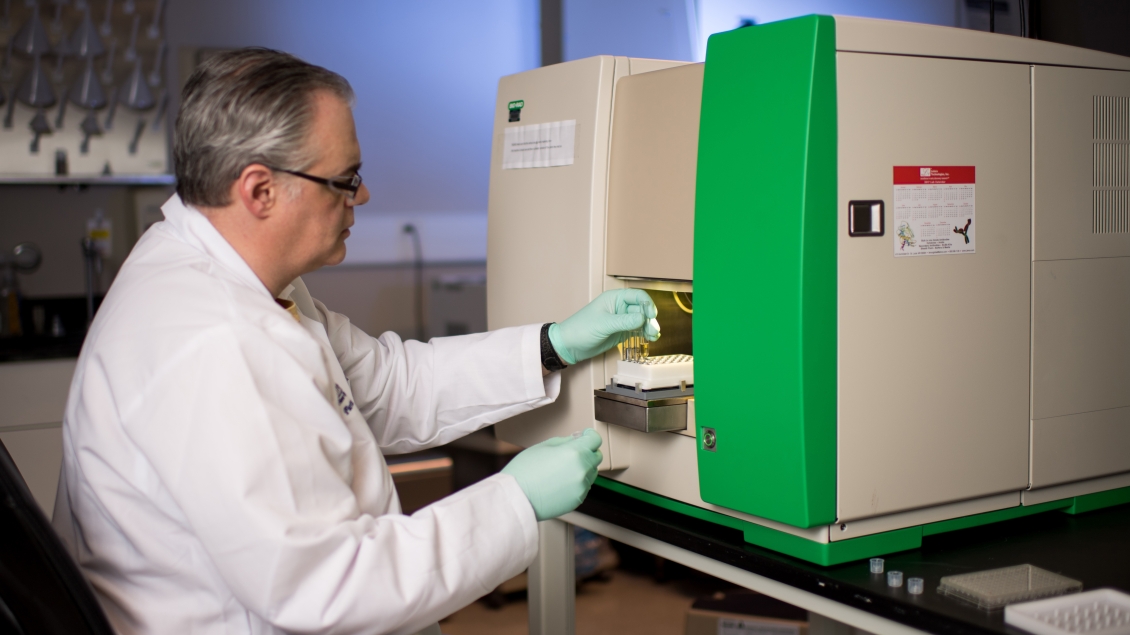
Offering cutting-edge technology and consultation to researchers at the University of Michigan and beyond.
The Flow Cytometry Core provides instrumentation and expertise to University of Michigan researchers – and the surrounding biotech community – across a broad range of basic and medical science disciplines. Samples are prepared by individual investigators, who then deliver to the Core for flow cytometric analysis or cell sorting. The Core also provides assistance in grant and publication preparation, publication-quality graphics, and the development of experimental designs.
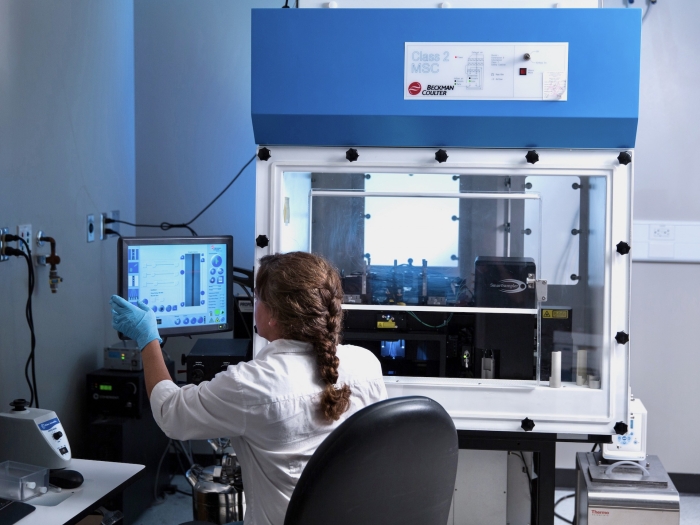
State-of-the-art instrumentation available at three convenient locations.
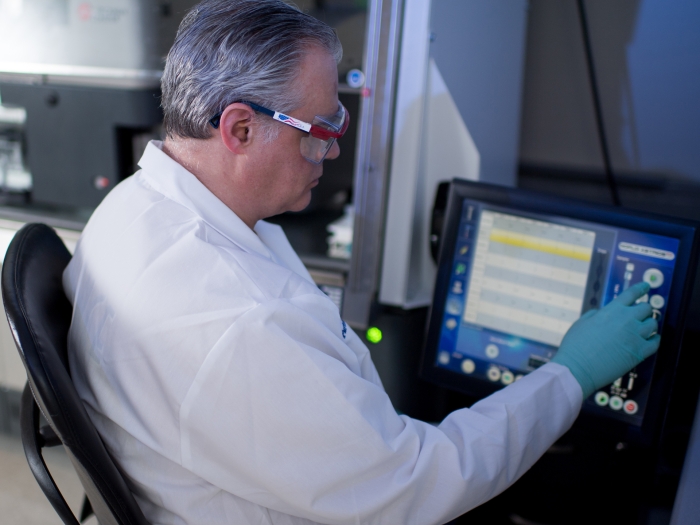
Converting your raw data to clear, easy-to-understand results.
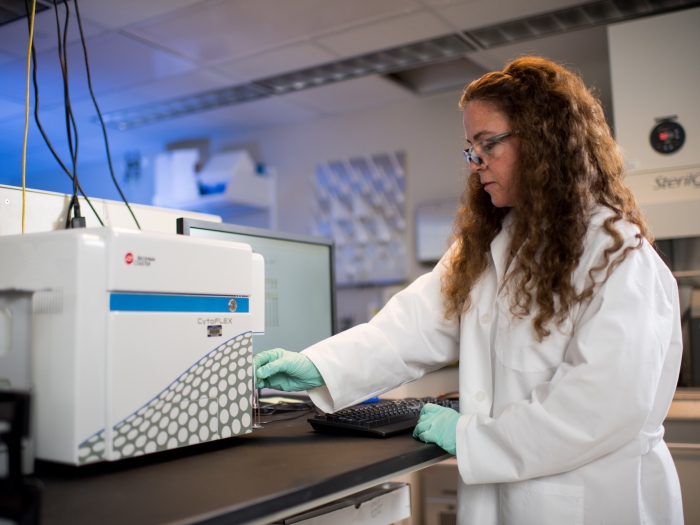
Introducing investigators to the power of flow cytometry.
Technician Rate - $150/hour for internal U-M projects
Self-Assist Rate - $75/hour for internal U-M projects
Instrument rates are the same for cell sorting or analysis.
Usage is billed in 15-minute increments rounded up to the nearest 15.
Comprehensive Cancer Center members receive a 25% discount subject to a $2,000 per lab cap and grant availability.
External users should contact David Adams for rate information.
Investigators must prepare samples in their individual laboratories. These samples are then delivered to the lab at or before the scheduled appointment time with a completed sample form. As needed, facility personnel can advise investigators regarding optimal sample preparation for various applications, and can also provide copies of procedures and/or relevant journal articles to assist in development of techniques. Investigators unfamiliar with new techniques should consult with the Facility Manager regarding staining protocols and necessary control samples.
First-time investigators must consult with the core manager concerning facility operating policies, and to discuss projects pursuant to optimizing experimental design, sample preparation, appropriate controls, and containment of potential pathogens. The facility cannot accept potentially pathogenic samples for cell sorting. If you have questions regarding viable human/primate samples or lentivirus-treated samples, please consult with the core manager. Samples labeled with radioactive materials are not accepted under any circumstances.
You'll find protocols provided as example preparations in this folder.
Medical Sciences Research Building (MSRB) II
Room C574
1150 West Medical Center Drive
Ann Arbor, MI 48109
Phone: 734-647-3216
Email: [email protected]
Biomedical Sciences Research Building (BSRB)
Room A701
109 Zina Pitcher Place
Ann Arbor, MI 48109
Phone: 734-615-3494
Email: [email protected]
North Campus Research Complex (NCRC)
Room 134D, Building 20W
2800 Plymouth Road
Ann Arbor, MI 48109
Phone: 734-763-5792
Email: [email protected]
The Flow Cytometry Core requires that all users collect a copy of their raw data at the end of each experiment. This data is generally delivered via Dropbox.
As the university currently lacks a central data repository, Core users are required to maintain copies of their own data. The core will make best efforts to maintain backup copies of data generated for a period of three years prior to deletion. However, while the servers are hosted by the university, they are not under the direct control of the Flow Cytometry Core and should, therefore, only be considered as a potential backup in the case of emergency. Users may request copies of archived data directly from core personnel. Direct user access to the servers is not allowed.
The safest copy of your data is the one that is already in your own hands!
The Flow Cytometry Core does not perform sample staining or other sample preparation services. Samples must be delivered to the core in machine-ready condition. If you have questions about sample tube or media selection, please contact the core staff.
Flow cytometry depends on single cells, flowing smoothly through the laser interrogation point. If cells are aggregating, this will perturb this flow and, in many instances, block the flow cell resulting in loss of data. Any samples showing evidence of aggregation, must be filtered (~40um filter size recommended) prior to use on the instrumentation.
The core does, indeed, archive all data for a period of ten years. However, the safest data is always the data that is already in your own hands. Media becomes obsolete, servers crash and hard drives die. While the core makes every effort to ensure zero data loss, it can happen, it is recommended that all users bring along a drive with their samples in order to capture a copy of the raw data.
Users have two options to purchase software licenses:
- FCS Express annual licenses can be purchased directly from the core. This software may be installed on all of the lab computers with a single concurrent user.
- FlowJo annual licenses can be purchased through the University. However, the core is not directly involved in their sale or distribution. The software license is limited to a single CPU.
Yes. The core usually operates with a full-schedule, and experiments are scheduled back-to back. There is no open space currently reserved for Walk-in experiments.
Maybe. While we require an appointment, we realize in science, things can come up unexpectedly. You can always call the lab, and if we can squeeze them in, we will be happy to do so.
No. Eventually, that operator will go on vacation, be sick or leave the core. Then you will be left without anyone to run your work. We train all core staff to be able to run and produce equivalent data.
You can, and in some cases, there are good reasons to do so. However, be aware that singling out a specific instrument to run your experiments will not grant you any priority on the instrument and will likely result in scheduling delays.
No. Please use MiCores for scheduling.
Yes, please login to your MiCores account.
Please contact David Adams directly for access requirements, as they vary by location.
Yes. The core offers a mandatory monthly training seminar for users wishing to learn to use the core’s equipment. After attending the (no-cost) seminar, the users will be scheduled for hands-on training on the appropriate instrumentation. Hands-on training is done individually, and we will not train multiple users at the same time. Additional users are trained at the standard rate for the time used.
Yes
Yes. However, we are very protective of our sorters, and if we do not feel that you are developing the proper skills, you will not be allowed to use them.
Yes. While you do not have to attend the seminar again, training still involves use of core instrumentation and staff and will be billed at the regular hourly rates.
Not formally, no. However, if the staff is familiar with the piece of software in question, we will be happy to answer any questions we can.
Also, TreeStar offers an annual FlowJo training seminar on campus.
None of them. Each platform offers its own unique advantages and disadvantages, but for the most part, you should consider them equivalent. The core works hard to ensure that all the equipment operates according to spec and provides identical data. In cases where an experiment would benefit from the abilities of one platform over another, we will advise the user and schedule accordingly.
Whichever one your cells are running on. Seriously, we will always schedule your experiment on an appropriate machine. Whether the operator prefers platform X or Y will not affect the results of the work in any way. If you are looking to purchase a flow cytometer, and you want some advice on choosing the appropriate platform, you may speak to the core manager directly.
We like to think that if it can be done on a flow cytometer, we will get it done on a flow cytometer. With that in mind, we will be happy to discuss any experiments which you would like to perform. If it is necessary to purchase additional equipment which is not likely to benefit the entire user base, we will pass that cost on to you.
Lasers cost many thousands of dollars, and the Core can not afford to purchase new lasers for a single user. However, if you have an interest in a new excitation source, please speak to the Core staff as it may be one we’re already considering, or we may have another option for you to consider.
Publications containing data facilitated by the Flow Cytometry Core should include an acknowledgement of the Core or include members as coauthors. The Flow Cytometry Core uses these acknowledgements and authorship to help demonstrate our contributions to the research community. This in turn helps secure future funding to maintain a robust Core facility and provide professional development of its staff. The Association of Biomolecular Resource Facilities has published a guideline to use when considering whether or not to include core laboratory members on publications.

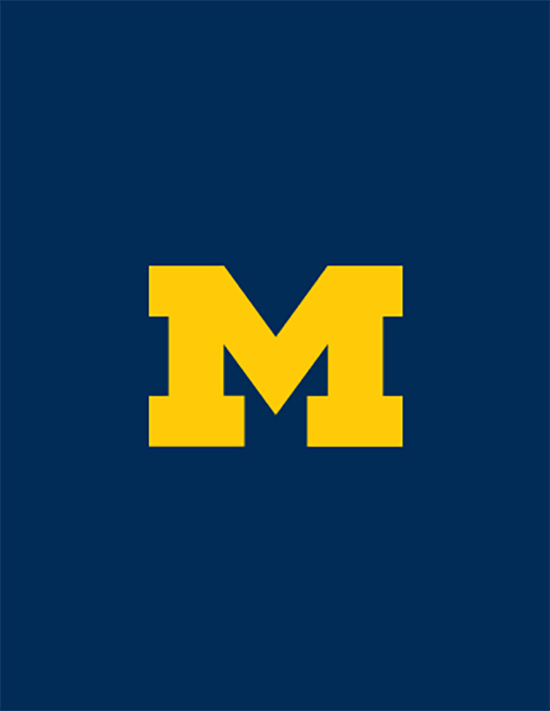
1150 West Medical Center Drive
Ann Arbor, MI 48109
109 Zina Pitcher Place
Ann Arbor, MI 48109
2800 Plymouth Road
Ann Arbor, MI 48109
